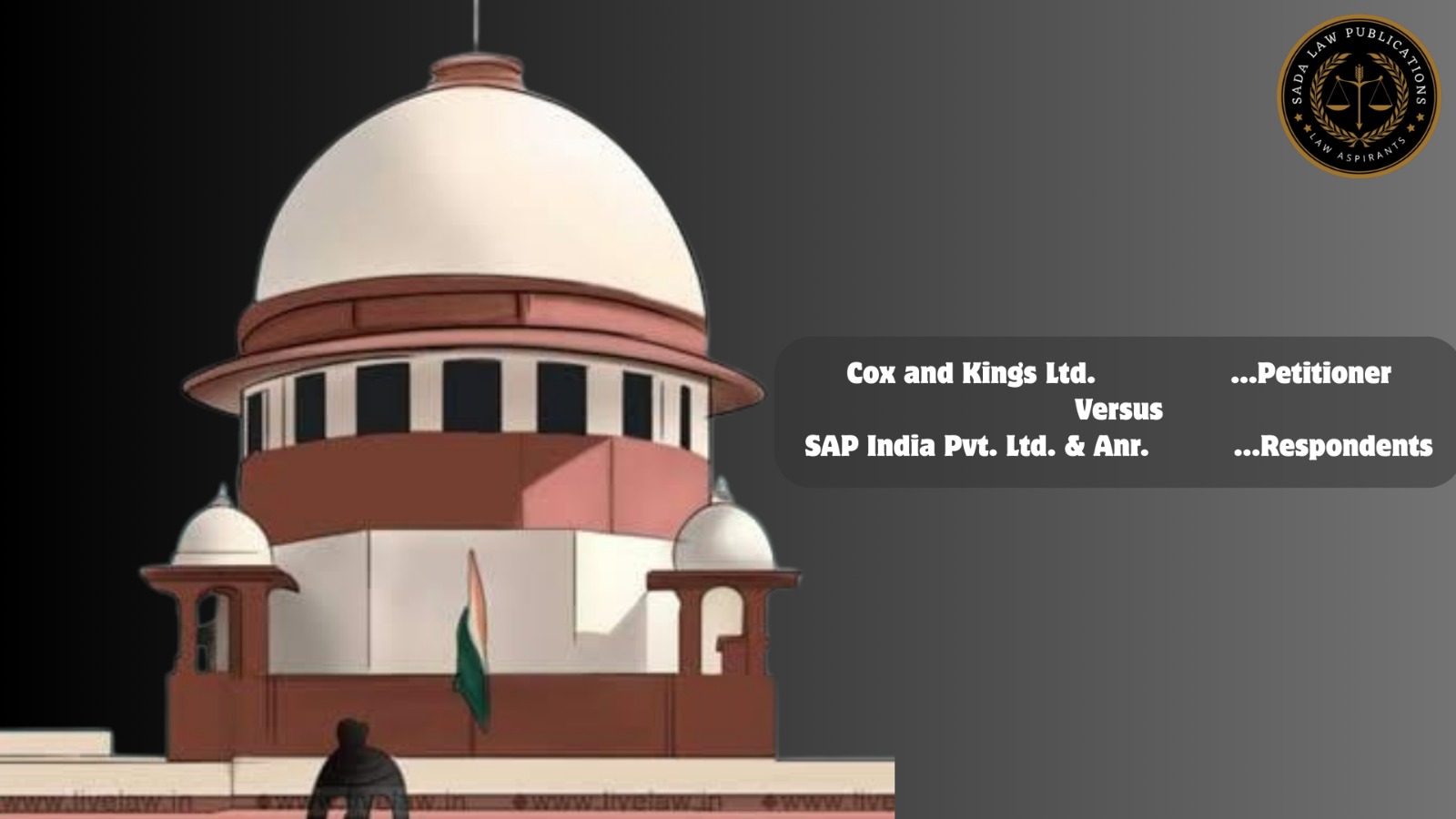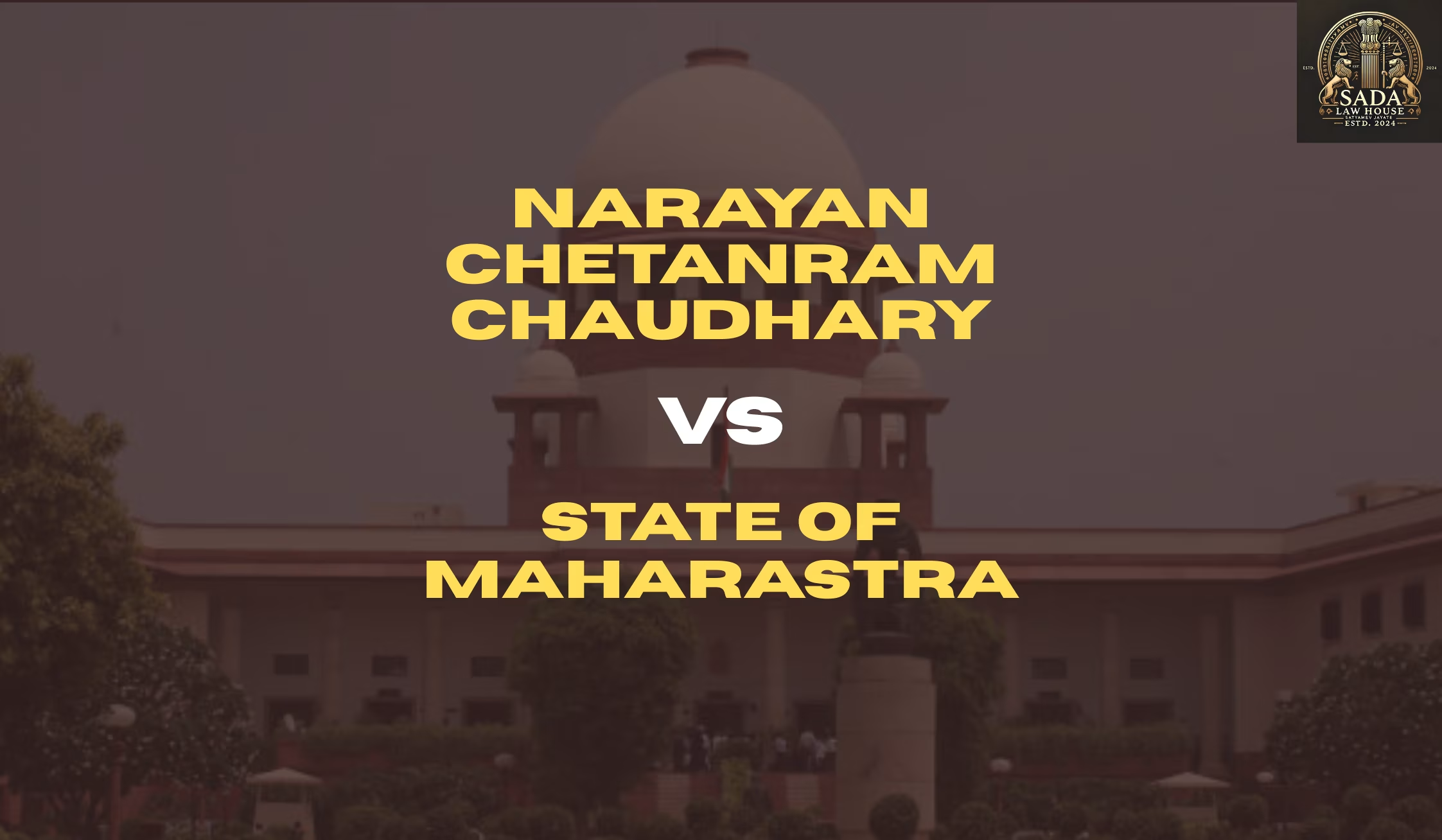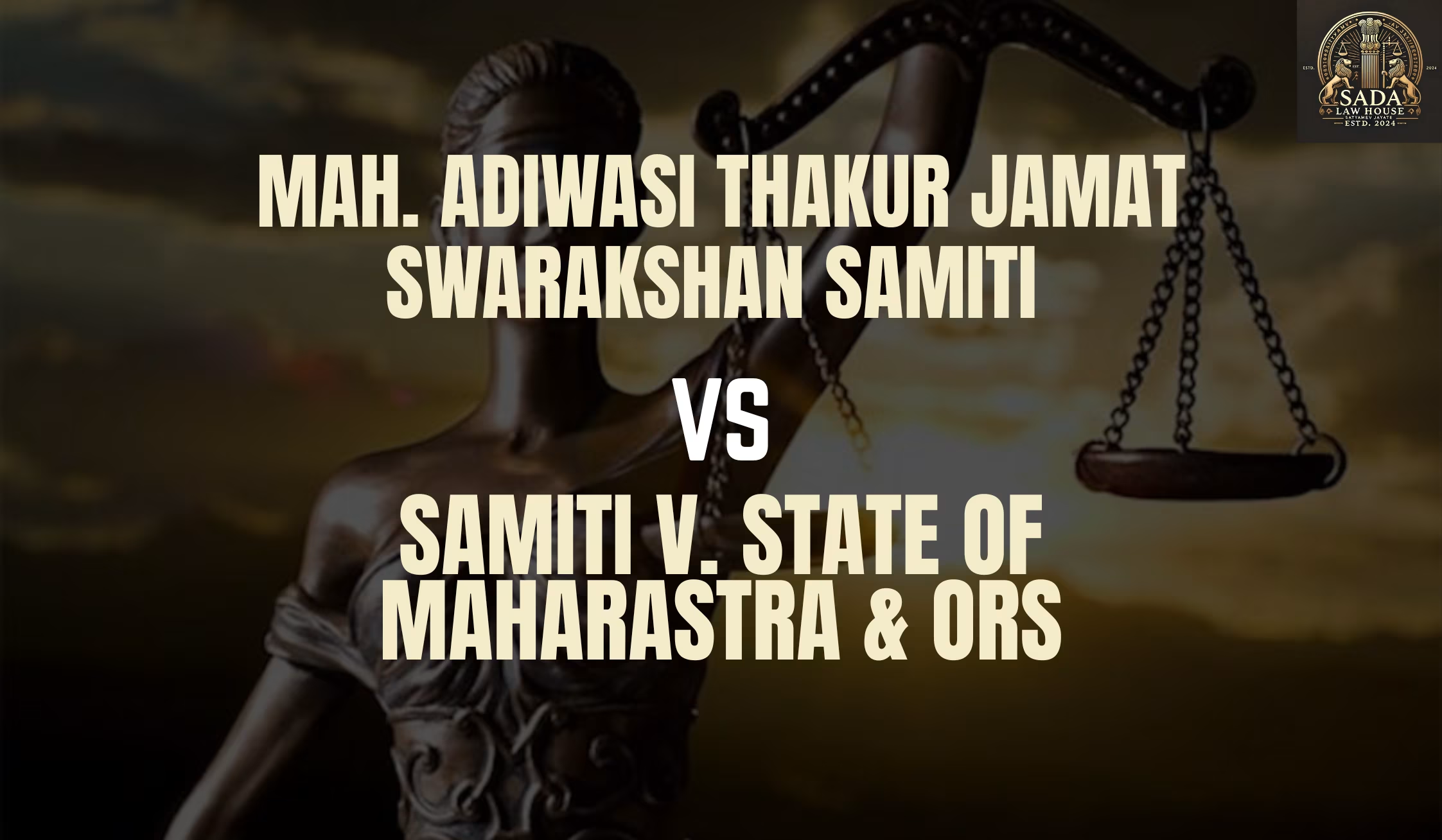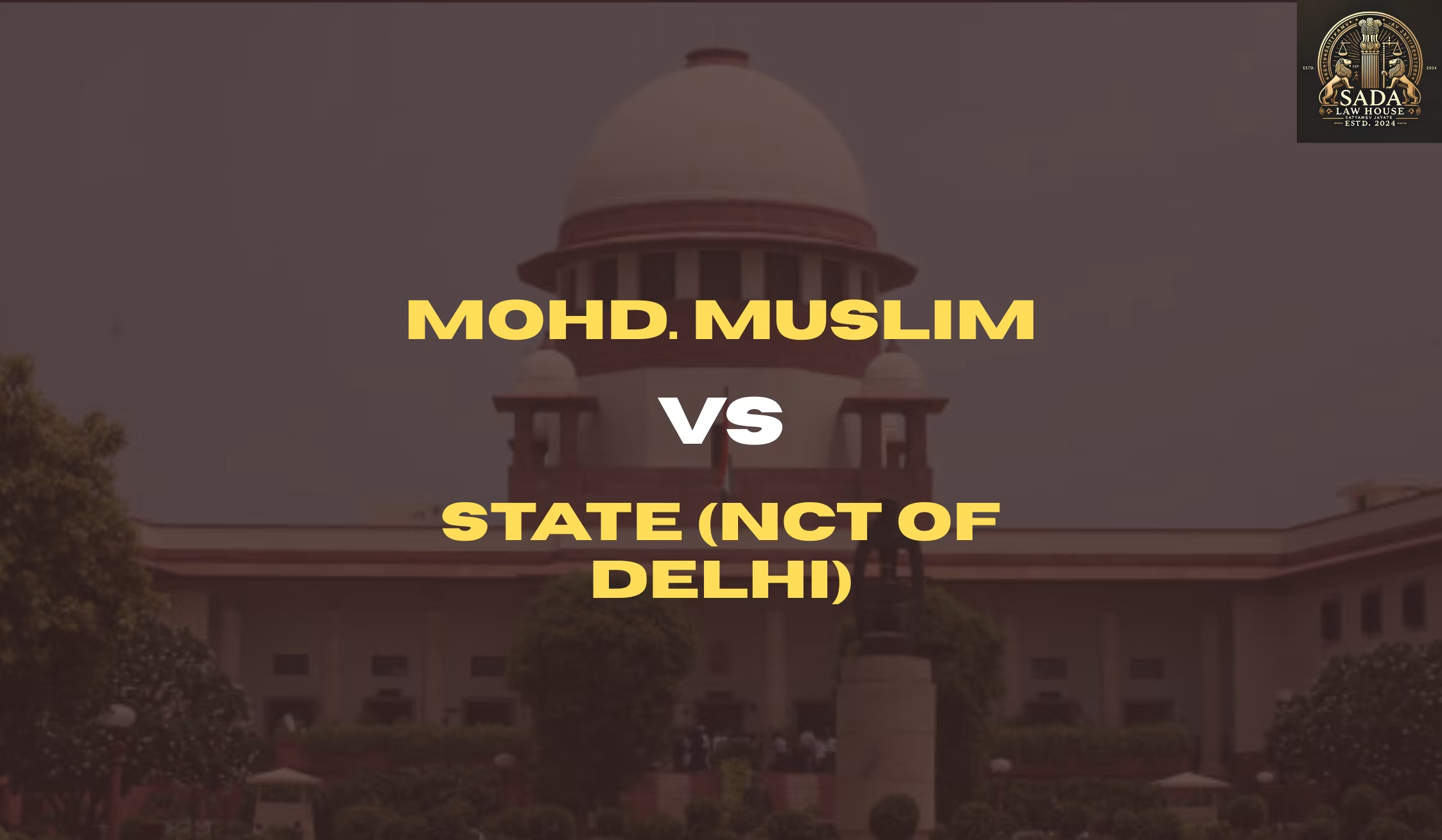Supreme Court Affirms Group of Companies Doctrine: Non-Signatories Can Be Bound by Arbitration Agreements
- NITU KUMARI
- 04 May 2025

In a landmark ruling in Cox and Kings vs SAP India (2023), the Supreme Court of India upheld the Group of Companies Doctrine, allowing non-signatories to be bound by arbitration agreements. Learn the implications for Indian arbitration law.
Case Overview – Cox and Kings vs SAP India Pvt. Ltd.
Date of Judgment: December 6, 2023
Case Citation: 2023 INSC 1051
Court: Supreme Court of India
Presiding Judges:
Dhananjaya Y. Chandrachud (Chief Justice)
This pivotal arbitration case involved Cox and Kings Ltd. (Petitioner) and SAP India (Respondent), along with its German parent company SAP SE. It examined whether a company that did not sign an arbitration agreement could still be bound by it under Indian law.
Factual Background
The Agreements and Dispute
In 2015, Cox and Kings engaged SAP India to provide software solutions for its e-commerce platform. Several agreements were signed, including one with an arbitration clause. Although SAP SE, the German parent company, was not a signatory, it was deeply involved in project execution.
Due to implementation failures, the project was abandoned in 2016. Cox and Kings sought ₹45 crore in compensation, while SAP India demanded ₹17 crore, alleging wrongful termination.
Arbitration Demand and Legal Issue
Cox and Kings issued arbitration notices to both SAP India and SAP SE. However, SAP SE had not signed any arbitration agreement. The Supreme Court was approached under Section 11 of the Arbitration and Conciliation Act, 1996 for the appointment of an arbitrator.
This brought up a crucial legal question:
Can non-signatories be compelled to arbitrate based on the Group of Companies Doctrine in Indian arbitration law?
Key Legal Issues
Can non-signatories be made parties to arbitration agreements?
Is the Group of Companies Doctrine valid under Indian arbitration law?
Under what conditions can a non-signatory be bound by an arbitration clause?
Supreme Court Observations
The Constitution Bench delivered several critical findings:
The definition of “parties” under Section 2(1)(h) includes both signatories and non-signatories in certain cases.
Actions by a non-signatory may imply tacit consent to be bound by an arbitration agreement.
The requirement of a written arbitration agreement (Section 7) does not exclude non-signatories where intent is clear.
The Group of Companies Doctrine is a valid and independent legal principle in Indian arbitration jurisprudence.
The doctrine cannot rely solely on concepts like alter ego or piercing the corporate veil.
Courts and tribunals must evaluate multiple factors (e.g., participation, mutual intent, business structure) before binding a non-signatory.
Rejection of Previous Interpretation
The Court criticized the ruling in Chloro Controls Pvt. Ltd. v. Severn Trent Water Purification Inc. (2012) for improperly linking “claiming through or under” to the Group of Companies Doctrine.
Judgment and Ratio Decidendi
The Court upheld the Group of Companies Doctrine in India, confirming:
Non-signatories can be bound by arbitration agreements under specific conditions.
Arbitral tribunals must assess the intent and involvement of the non-signatory at the referral stage.
The doctrine enhances clarity in complex multi-party, multi-contract commercial disputes.
Implications for Indian Arbitration Law
This decision marks a significant shift in how arbitration agreements are interpreted, especially in cases involving corporate groups. It sets a precedent for binding non-signatory entities that actively participate in contract execution or show intent to be bound.
Key Takeaways:
The Group of Companies Doctrine is now a settled part of Indian arbitration law.
Courts must take a case-by-case approach, considering conduct and corporate relationships.
Arbitral tribunals can decide on non-signatory involvement at the referral stage.
Conclusion
The Supreme Court’s ruling in Cox and Kings vs SAP India Pvt. Ltd. reinforces the principle that corporate entities within the same group may be bound by an arbitration agreement, even without being formal signatories. The Group of Companies Doctrine provides flexibility in addressing disputes in multi-party commercial contracts, aligning Indian arbitration law with global standards
Case Laws







